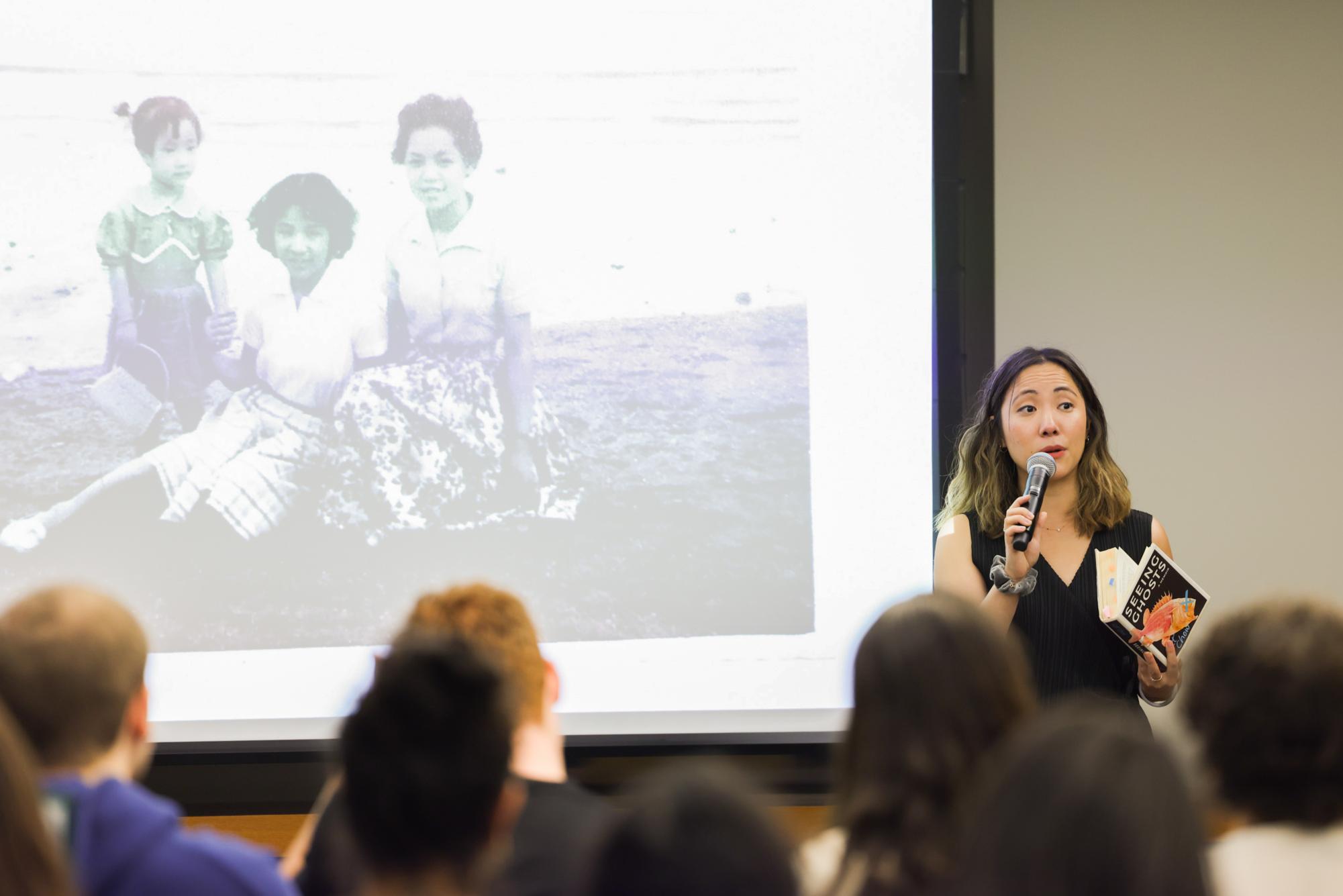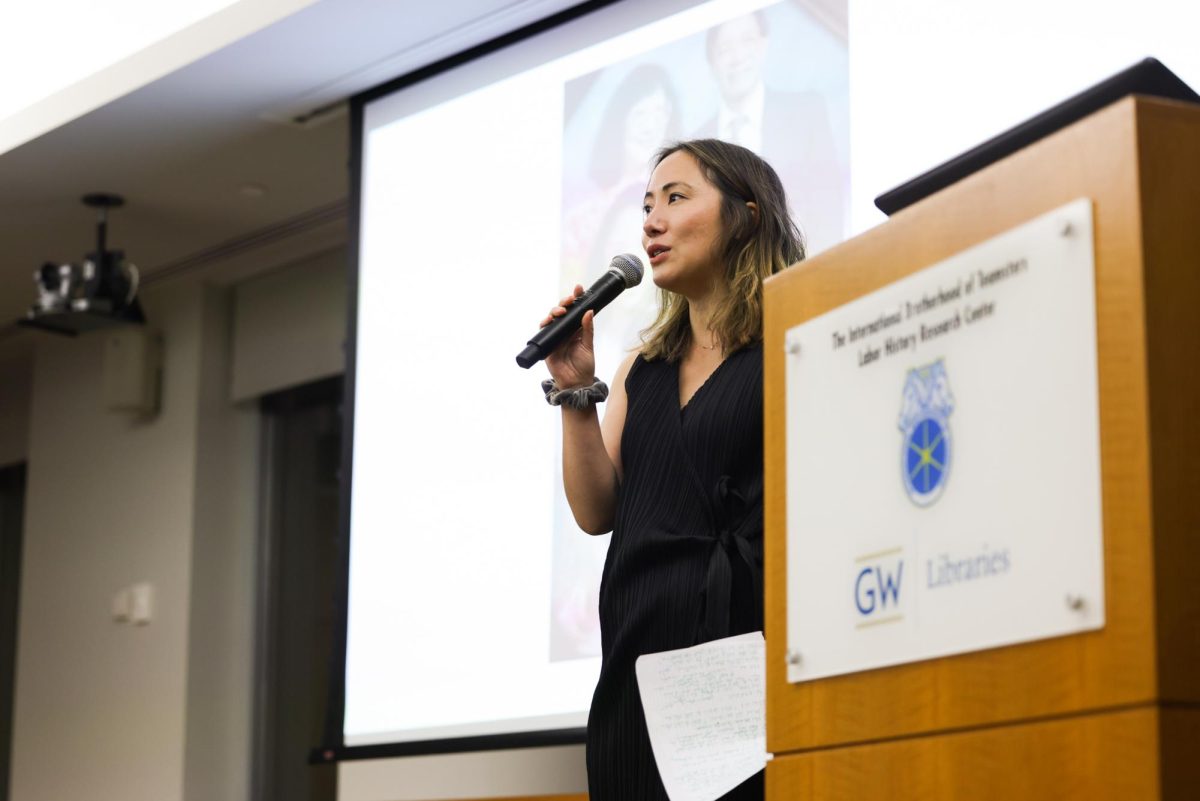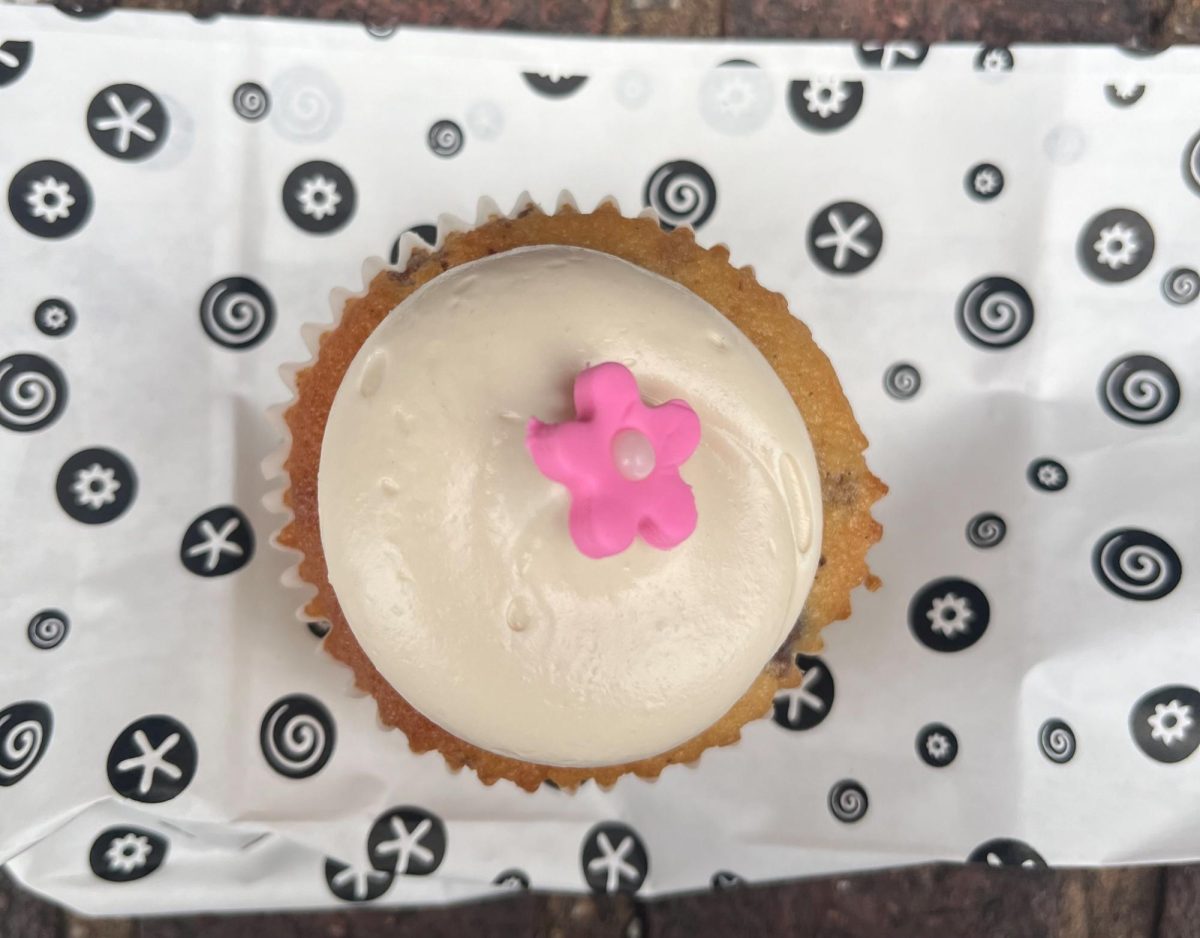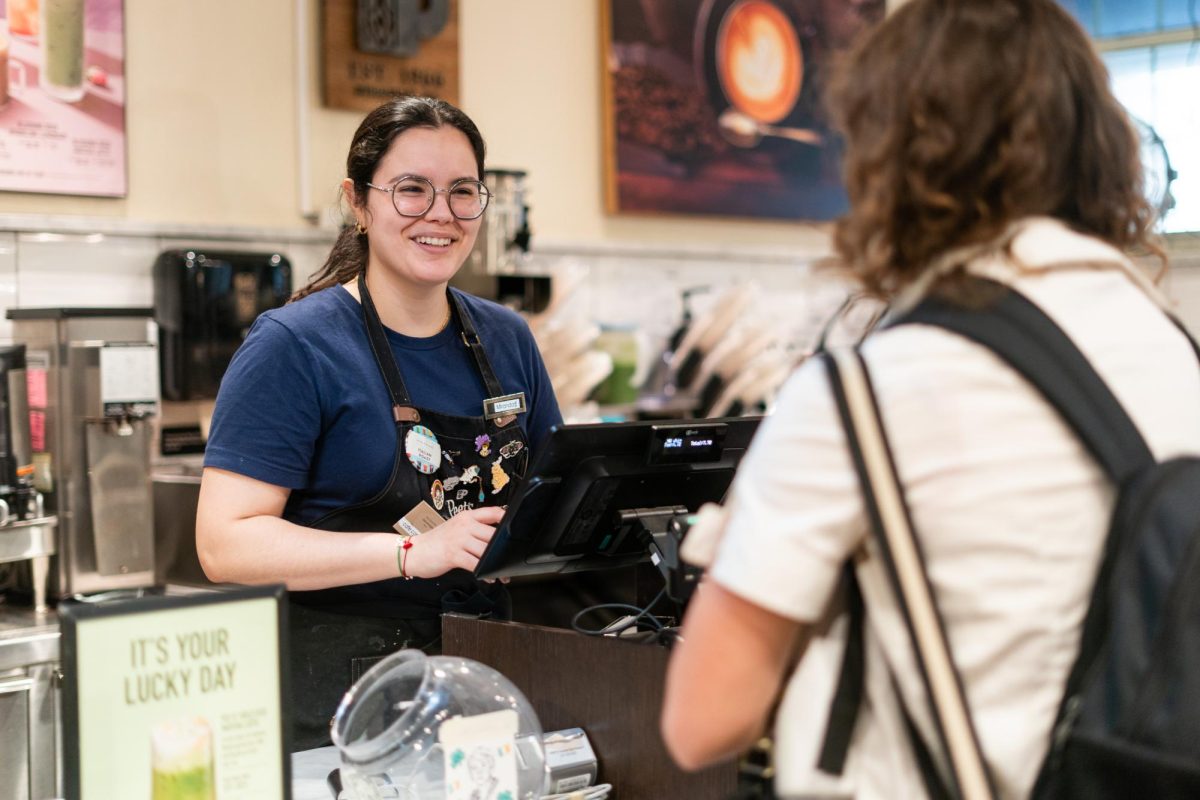As a steady rain fell and a cold wind blew through the District on Thursday night, students and locals gathered indoors to hear writer and NPR reporter Kat Chow tell a ghost story.
Chow — the recipient of an English department professorship fund — read from her 2021 memoir, “Seeing Ghosts,” as an installment in the program’s reading series. The Jenny McKean Moore Writer in Washington program, established in 1976 with an endowment from former GW playwriting student Jenny McKean Moore, brings a working writer to campus for two semesters every other year to teach an undergraduate creative writing course and a free on-campus workshop for District locals.
Relatives of the late Moore, past professorship recipient and author Cutter Wood and a group of students from Chow’s classes attended the reading and Q&A on the top floor of Gelman Library. Director of Creative Writing Lisa Page introduced Chet’la Sebree, an assistant professor of English, who gave a glowing synopsis of Chow’s memoir and career as a journalist and author. Chow then made her way to the podium, thanking her students for their attendance and giving a quick introduction about her memoir.
“I think that writers in general tend to gravitate toward a subject or a question that is a bit thorny,” Chow said, projecting a circa 1994 Sears photograph of her family behind her. “And for me, it was the question of my family: ‘What does family look like to me, how to tell this story?’”
“Seeing Ghosts” is a story about grief, loss, history and family, centering around the death of Chow’s mother when she was 13. Chow read aloud poignant, painfully funny and intimate passages from her worn and marked copy of the memoir. She said interviews with distant relatives and family stories of her parents’ lives in China were key in compiling her story.
The passages she shared had a common theme of preservation: her mother’s dedication to documentation, her father’s attachment to material items and Chow’s commitment to retaining her mother’s presence in her life. For Chow, the best embodiment of preservation is taxidermy, a central metaphor in the memoir.
“This book is framed around a story of taxidermy that is a bit macabre,” Chow said. “Which is that my mother is this ghost-like formation that visits the speaker or me.”
Chow said the theme, oddly enough, has presented itself throughout her life, the first time being when she was nine years old and sitting in her mother’s van, a scene she depicts in “Seeing Ghosts.”
“‘When I die,’ you said, as you made that face,” Chow read, quoting a passage where her mother is talking. “‘I want you to get me stuffed so I can sit in your apartment and always watch you.’ This was the first and would be the only time you would address your death with me.”
Chow frequently referred to the importance of images to the story, in terms of photographs and symbols, to give her grief a physical manifestation. She said that as a child, her family talked to her about ghosts, passing down a belief from Hong Kong that ghosts will linger if you didn’t “do the right things” while processing grief. She said these ideas stuck with her, guiding the theme of prolongation.
“Holding and hoarding can’t turn ghosts to flesh, but we create those souvenirs nevertheless,” she read. “It allows us, in a way, to hold our loss close.”
In an interview, Chow said that storytelling and documentation have always been the defining markers of her career, as she is “constantly asking questions” about the world around her. She said this curiosity has allowed her to explore writing and journalism, writing articles on family, politics and culture and producing and reporting for NPR podcasts, including “Code Switch,” which explores the role of race in all aspects of life.

Chow, who grew up in Connecticut before going to report everywhere from Amsterdam, Netherlands, to Boston, Massachusetts, said she teaches the class Creative Nonfiction through her professorship this academic year, which focuses on “writing the personal.” She said that the course and her adult creative writing workshop have been “amazing” experiences, as she is “astounded” by the talent and thoughtfulness of her students.
“Oftentimes when we think about writing as either a craft or a career, it can seem quite intimidating,” she said. “And so I want them to understand that they each have a unique writing voice and that there is a story for them to tell and that they can do it.”
She said the variation in age and life experiences between her undergraduate students and those in the workshop — the oldest student being 80 — allows her to understand how people in different stages of life interpret texts. The two classes often read the same essays, like “Against Catharsis” by T. Kira Madden, which argues against the concept of writing as therapy. She said the workshop allows her to engage with people from the D.C. area, where she’s lived for the past decade, who might not have otherwise had an opportunity to take the class.
“Whether it’s romantic relationships, whether it’s about friendship, whether it’s about a work situation or a piece of art that they’re fascinated by or something that they thought about when they were hiking through nature,” Chow said. “I really get to understand a lot about our lives at different points of living.”
Jung Yun, an associate professor of English, said she led the search committee for this year’s professorship recipient. She said Chow immediately “rose to the top” due to her background in journalism when she was reviewing applicants for the position. She said that after reading her writing samples from the application, she and the search committee read and listened to Chow’s other content, noting that she discusses varying topics “as if she’s an expert” in each area.
She said Chow’s memoir is a beautiful “meditation on grief” that has been highly praised, as some of her students have read it and connected with the themes of loss and family in personal ways.
“My students who have read it have responded to it really well, not necessarily because they have lost parents too but because they have lost grandparents or older relatives,” Yun said.
Page said she has overseen the Jenny McKean Moore program for about 10 years, helping coordinate programming and provide support for past program participants, including setting up community readings off campus. She said these programs allow the writer to connect with the greater D.C. community, adding that Chow will be doing a reading at the Hill Center at the Old Naval Hospital in March.
Page said she teaches “Seeing Ghosts” in her class, American Memoir, and Chow did a reading and discussion for her students, highlighting the centrality of preservation and the metaphor of taxidermy to the story. She said her students and adults from the workshop have expressed their praise for Chow’s work and the opportunities the program has presented them.
“She is a treat to be around,” Page said. “She is so generous with our students, so giving, so personable.”







